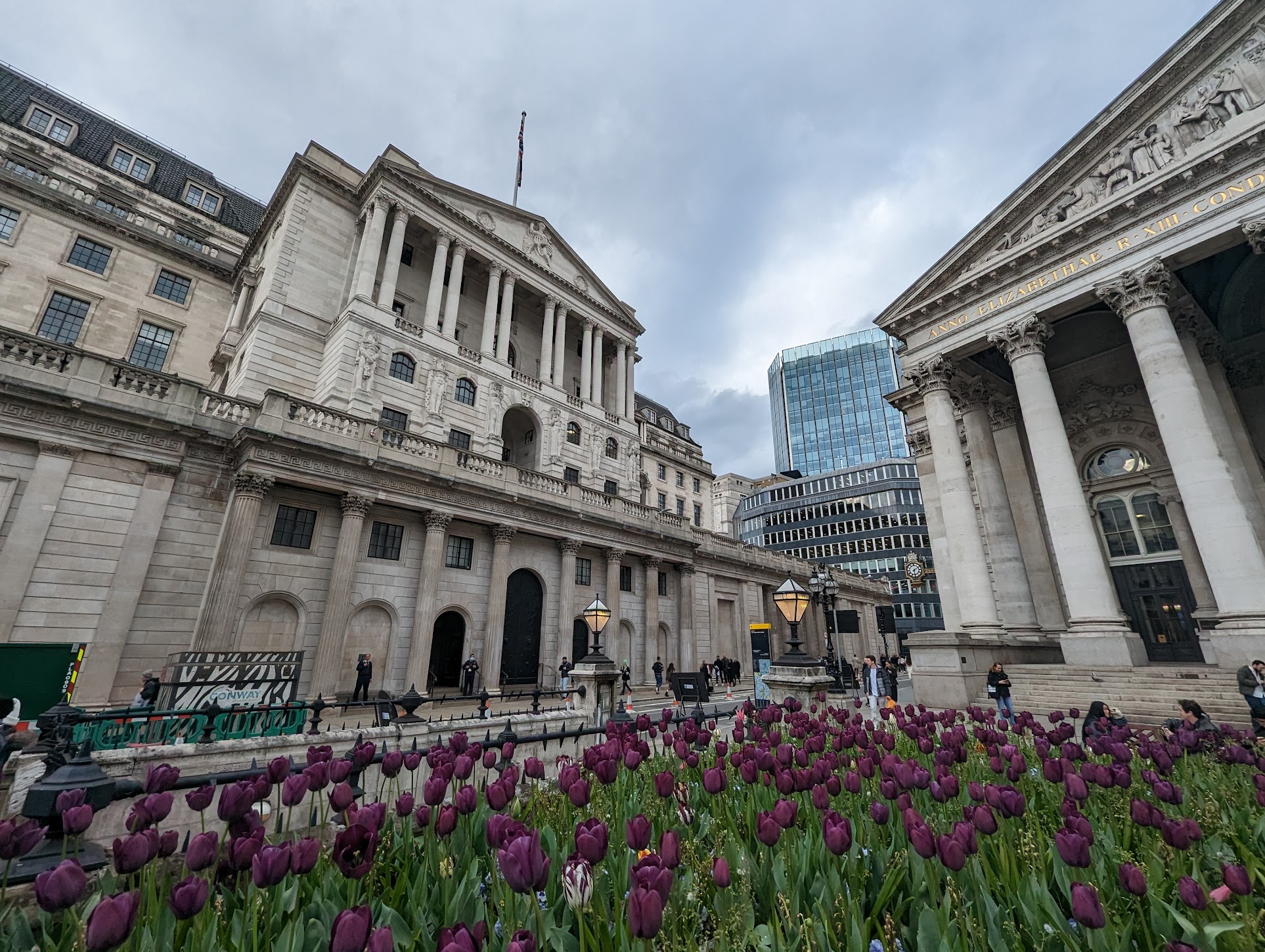Bank of England holds rates at 4% and slows bond sales

The Bank of England (credit: George Iordanov-Nalbantov)
The Bank of England’s Monetary Policy Committee (MPC) has voted 7-2 to hold interest rates at 4%, citing persistent inflationary pressures.
In a dual decision, the committee also announced it would slow the pace of its quantitative tightening (QT) programme in response to febrile market conditions that have driven up government borrowing costs.
The decision to maintain rates was driven by a commitment to return inflation to its 2% target. Inflation for the year to August was 3.8%, with food prices continuing to climb. Bank of England Governor Andrew Bailey commented: “Although we expect inflation to return to our two per cent target, we’re not out of the woods yet so any future cuts will need to be made gradually and carefully.”
Minutes from the meeting revealed concerns that inflation expectations remain “elevated relative to historical averages”. Officials also pointed to last year’s tax hikes as a factor forcing employers to adjust their costs.
The two dissenting members, Swati Dhingra and Alan Taylor, voted for a 0.25 percentage point cut. They argued the UK’s “inflation hump” would ease, pointing to slowing wage growth, weak domestic demand, and cracks in the jobs market, highlighted by the loss of 142,000 jobs over the last year.
In a significant policy shift, the MPC will reduce its annual QT target from £100 billion to £70bn over the next 12 months. This involves the bank selling off government bonds, known as gilts, that it holds on its balance sheet. The move is designed to minimise the impact on the gilt market, where soaring yields have increased borrowing costs for the Treasury. Some analysts have blamed the bank’s previous pace of sales for deepening the crisis in the bond markets.
Under the revised strategy, the bank will sell half as many long-term gilts as short and medium-term ones – a change from its previous approach of selling them at similar rates. The decision was not unanimous, with Catherine Mann favouring a steeper slowdown and chief economist Huw Pill supporting the maintenance of the £100bn pace.
The new target is expected to put the Chancellor under further pressure, as the Office for Budget Responsibility (OBR) is forecast to predict higher borrowing costs later this year, potentially forcing a search for extra revenue ahead of the Autumn Budget.






